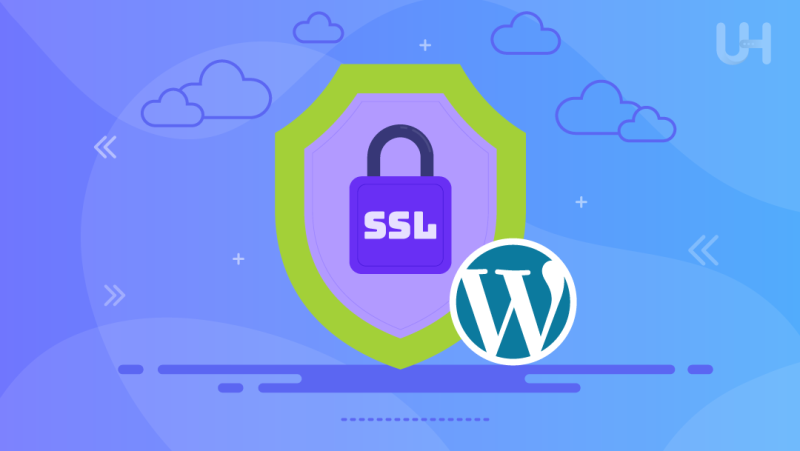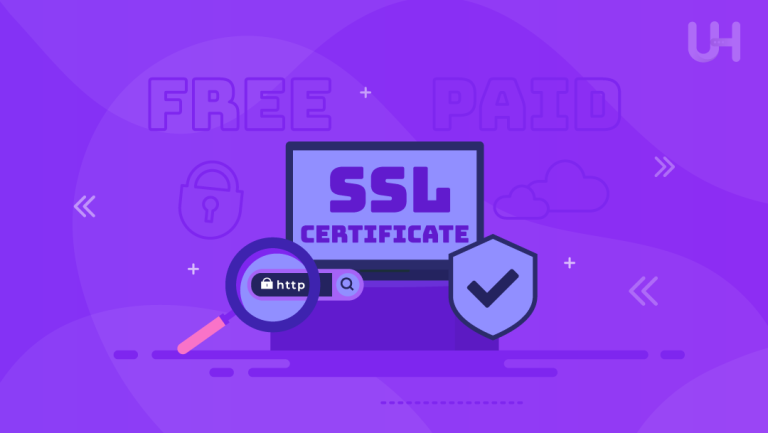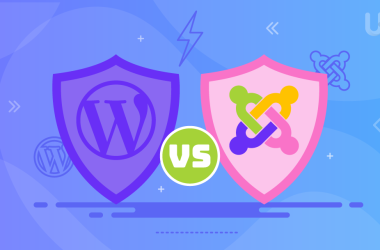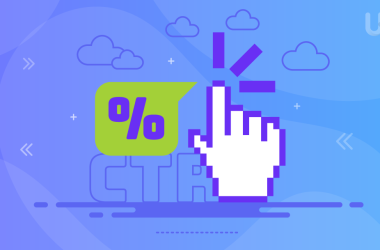WordPress SSL plugins play a pivotal role in simplifying the implementation and management of SSL certificates on WordPress sites. These plugins offer a diverse array of features, ranging from automated certificate installation to HTTPS enforcement and mixed content fixing. By leveraging these tools, WordPress users can bolster the security of their websites, providing visitors with a safer browsing experience.
In this blog, we will discuss all about finding the best SSL plugins for WordPress websites. We’ll look at different plugins to see the easiest one to use and offer the best protection for your website. Whether you’re new to website security or a tech expert, this blog will help you pick the right WordPress SSL plugin.
What is SSL?
SSL, or Secure Sockets Layer, is a security protocol that establishes an encrypted link between a web server and a browser. It ensures that all data transmitted between the two endpoints remains private and integral. In simpler terms, SSL acts like a protective layer that shields information as it travels over the internet.
When a website has SSL enabled, it means that the data exchanged between the website’s server and a visitor’s browser is encrypted. Moreover, this encryption makes it incredibly difficult for unauthorized parties to intercept or decipher the information being transmitted. Without SSL, this data is vulnerable to interception, potentially exposing sensitive details such as login credentials, personal information, or financial data.
How does SSL work to secure data transmission?
SSL works through a process called encryption, which involves encoding data in such a way that only authorized parties can understand it. Here’s a simplified overview of how SSL secures data transmission:
- Handshake: When a visitor’s browser connects to a website with SSL, it initiates a process called the SSL handshake. During this handshake, the browser and the website’s server exchange cryptographic keys. Moreover, agree on a secret code to encrypt the data.
- Encryption: Once the handshake is complete and the encryption keys are exchanged, the data transmitted between the browser and the server is encrypted. This means that the information is scrambled into a format that is unreadable without the corresponding decryption key.
- Transmission: The encrypted data is then sent between the browser and the shared server over the internet. Even if intercepted by malicious actors, the encrypted data remains indecipherable without the proper decryption key.
- Decryption: Upon reaching its destination, the encrypted data is decrypted using the secret code agreed upon during the handshake. This process restores the data to its original form, allowing it to be processed and displayed to the user.
By encrypting data during transmission, SSL ensures that sensitive information remains confidential and secure. Furthermore, safeguardes it from interception and tampering by hackers or other malicious entities.
Importance of SSL for website security and SEO
SSL plays a crucial role in enhancing website security and maintaining the integrity of online communication. Here are some key reasons why SSL is important:
- Data Protection: SSL encrypts sensitive information, such as login credentials, credit card numbers, and personal details. Moreover, it provides data privacy by preventing unauthorized access and safeguarding it from interception by hackers.
- Trustworthiness: Websites with SSL certificates are considered more trustworthy by visitors because they assure data security. This trust is essential for building credibility and fostering positive user experiences.
- Regulatory Compliance: Many regulations and industry standards, such as the GDPR (General Data Protection Regulation) and PCI DSS (Payment Card Industry Data Security Standard), require websites to implement SSL encryption. It is to protect user data and comply with legal requirements.
- SEO Benefits: Search engines like Google prioritize secure websites in their search results. Moreover, websites with SSL certificates may receive a ranking boost, leading to increased visibility, traffic, and potential customers.
SSL is vital for ensuring the security, trustworthiness, and compliance of websites. By encrypting data and providing a secure browsing experience, SSL helps protect both website owners and visitors from potential security threats and vulnerabilities.
Criteria for Selecting WordPress SSL Plugins
Compatibility with WordPress Versions
One of the foremost considerations when choosing a WordPress SSL plugin is ensuring compatibility with the version of WordPress hosting. WordPress regularly releases updates to improve functionality, security, and performance, and plugins must keep pace with these changes. Furthermore, using an SSL plugin that is compatible with your WordPress version ensures smooth integration and minimizes the risk.
Before installing a plugin, check its compatibility information in the plugin description or documentation to verify that it supports your WordPress version.
Ease of Installation and Setup
The installation and setup process of a WordPress SSL plugin should be user-friendly, even for those with limited technical expertise. Therefore, look for plugins that offer straightforward installation procedures and clear, step-by-step setup instructions. Ideally, the plugin should include a setup wizard or onboarding process that guides users through configuring SSL settings effectively.
Automation features, such as one-click certificate installation or automatic HTTPS redirection, can further streamline the setup process and reduce the need for manual configuration. Prioritize plugins that prioritize user experience and make SSL implementation accessible to all WordPress users.
Features Offered
Assess the range of features offered by each WordPress SSL plugin to ensure it meets your specific requirements. Key features to consider include:
Certificate management: The ability to easily obtain, install, and renew SSL certificates directly from the WordPress dashboard.
HTTPS enforcement: Automatic redirection of HTTP traffic to HTTPS to ensure all communication between the browser and server is encrypted.
Mixed content fixing: Detection and correction of mixed content warnings, where insecure HTTP resources are loaded on HTTPS pages, to maintain a fully secure connection.
Additionally, evaluate whether the plugin offers advanced features such as support for wildcard certificates, integration with Content Delivery Networks (CDNs), or compatibility with third-party security services. Choose a plugin that offers the necessary features to enhance the security and functionality of your WordPress website.
Performance Impact
Consider the potential performance impact of each WordPress SSL plugin on your website. SSL encryption adds computational overhead and may increase page load times, so it’s essential to select a plugin that minimizes performance degradation. Look for plugins that are optimized for efficiency and utilize modern encryption algorithms to reduce computational overhead.
Additionally, consider plugins that offer website cache mechanisms or performance optimizations to mitigate any performance impact associated with SSL encryption. Prioritize plugins that strike a balance between security and performance to ensure optimal website speed and responsiveness.
User Reviews and Ratings
User reviews and ratings provide valuable insights into the real-world performance and usability of WordPress SSL plugins. Before making a decision, take the time to read reviews from other users to understand their experiences with the plugin. Moreover, pay attention to feedback regarding ease of use, reliability, support responsiveness, and overall satisfaction with the plugin.
Look for plugins with positive reviews and high ratings, indicating that they have a track record of delivering on their promises and meeting user expectations. Additionally, consider seeking recommendations from trusted sources, such as WordPress communities or industry forums, to gather insights from experienced users and experts.
By carefully evaluating each WordPress SSL plugin based on compatibility, ease of use, features, performance, and user feedback, you can select a plugin that meets your website’s specific needs and enhances its security and functionality. Take the time to research and test different plugins to find the best fit for your WordPress website.
Get The Best SSL Plans For Your Website Security!
Secure your website with an SSL certificate from UltaHost! UltaHost provides powerful servers with high-end resources that will guarantee resource exclusivity. Choose the best one based on your needs!
Top 5 Best WordPress SSL Plugins
Really Simple SSL
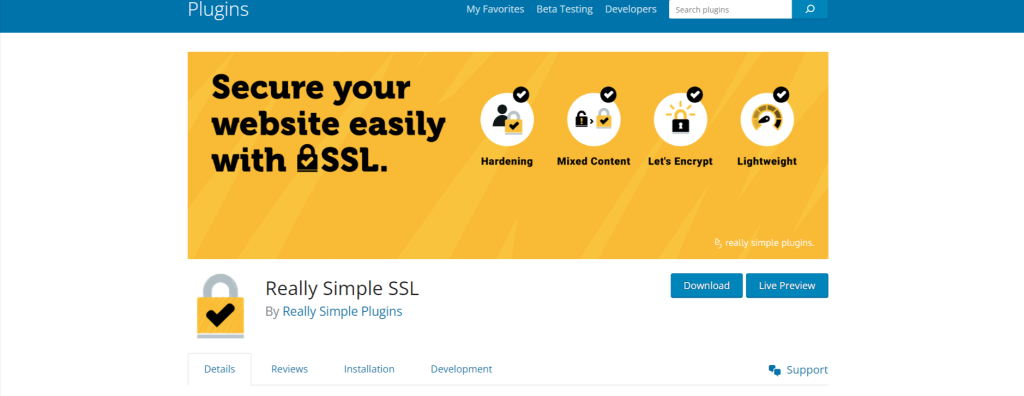
Really Simple SSL aims to make the transition to HTTPS as effortless as possible for WordPress users. It automates the process of configuring SSL settings, eliminating the need for manual adjustments to .htaccess files or WordPress configuration files. With over 5 million active installations, Really Simple SSL has established itself as a go-to solution for website owners looking to secure their WordPress sites with minimal hassle.
Key Features
- Automatic SSL certificate detection and configuration: Really Simple SSL detects whether an SSL certificate is installed on the server and configures WordPress to use HTTPS automatically.
- Mixed content fixing: The plugin scans your website for insecure HTTP resources and replaces them with secure HTTPS equivalents to prevent mixed content issues.
- HTTP to HTTPS redirection: Really Simple SSL redirects all HTTP traffic to HTTPS to ensure a secure browsing experience for visitors.
- No setup required: Once activated, Really Simple SSL works out of the box, requiring no manual configuration or technical expertise.
Pros
- Really Simple SSL is designed for ease of use, making it accessible to WordPress users of all skill levels.
- The plugin automates the process of configuring SSL settings, saving users time and effort.
- Really Simple SSL identifies and resolves mixed content issues, ensuring all resources are loaded securely over HTTPS.
- The basic functionality of Really Simple SSL is available for free, making it an affordable option for website owners using affordable WordPress hosting.
Cons
- While Really Simple SSL excels at basic SSL configuration, it may lack some advanced features found in other SSL plugins.
- Really Simple SSL requires an existing SSL certificate to function properly, which may necessitate additional setup steps for users without SSL installed.
WP Force SSL
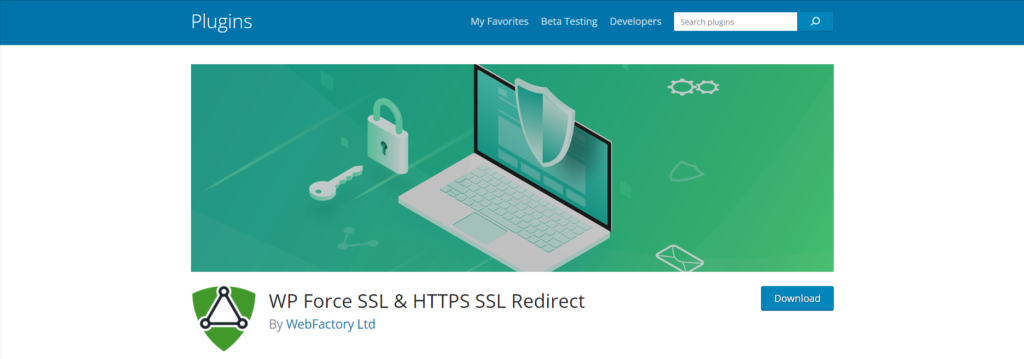
WP Force SSL is a lightweight and straightforward plugin that focuses on enforcing SSL encryption on WordPress websites hosted on a dedicated server. With a simple setup process and minimal configuration options, it’s an ideal choice for users looking for a no-frills solution to ensure their site’s security.
Key Features
- Automatic HTTPS redirection: WP Force SSL automatically redirects all HTTP traffic to HTTPS, ensuring that visitors always access the secure version of the website.
- Flexible redirection rules: The plugin allows users to specify custom redirection rules based on specific URLs or pages, providing greater control over the SSL enforcement process.
- Mixed content detection: WP Force SSL identifies and fixes mixed content issues by replacing insecure HTTP resources with secure HTTPS equivalents, ensuring a fully secure browsing experience for visitors.
- Lightweight and efficient: WP Force SSL is designed to have minimal impact on website performance, making it suitable for sites of all sizes.
Pros
- WP Force SSL offers a straightforward setup process, making it easy for users to enforce SSL encryption on their websites without requiring technical expertise.
- The plugin allows users to define custom redirection rules, giving them flexibility in how SSL enforcement is applied to different URLs or pages.
- WP Force SSL effectively detects and resolves mixed content issues, ensuring that all resources are loaded securely over HTTPS.
- WP Force SSL is designed to be lightweight and efficient, minimizing its impact on website performance.
Cons
- WP Force SSL may lack some advanced features found in other SSL plugins, such as certificate management or comprehensive security checks.
- While the plugin offers some flexibility in redirection rules, users may find its customization options somewhat limited compared to other SSL plugins.
- WP Force SSL requires an existing SSL certificate to function properly, which may require additional setup steps for users without SSL installed.
Flexible SSL
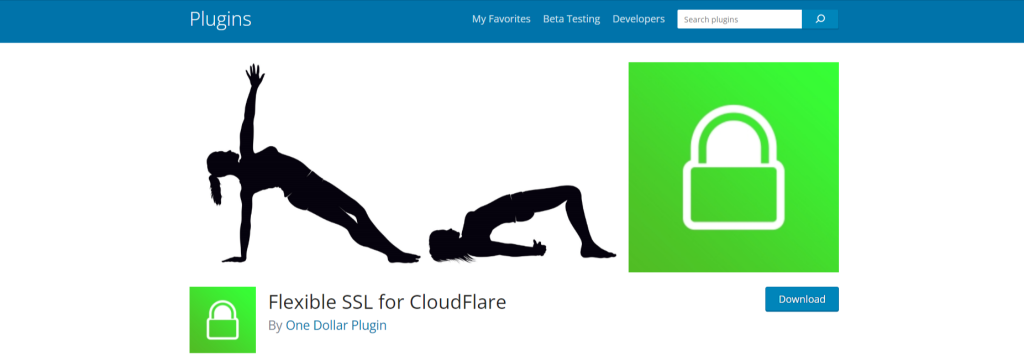
Flexible SSL offers users the flexibility to enable SSL encryption on their websites without requiring an SSL certificate installed on the server. Instead, it utilizes Cloudflare’s Flexible SSL feature, allowing websites to benefit from SSL encryption through Cloudflare’s content delivery network (CDN). This makes it an accessible option for users who may not have access to or the ability to install SSL certificates directly on their servers.
Key Features
- Cloudflare integration: Flexible SSL seamlessly integrates with Cloudflare, a leading content delivery network (CDN) provider, to enable SSL encryption for websites. Users can leverage Cloudflare’s network to encrypt traffic between visitors’ browsers and the Cloudflare CDN, even if SSL is not installed on the origin server.
- Automatic HTTPS redirection: Flexible SSL automatically redirects HTTP traffic to HTTPS, ensuring that visitors always access the secure version of the website.
- Mixed content fixing: The plugin helps identify and resolve mixed content issues by replacing insecure HTTP resources with secure HTTPS equivalents, ensuring a fully secure browsing experience for visitors.
- Easy setup and configuration: Flexible SSL offers a straightforward setup process, making it easy for users to enable SSL encryption on their websites using Cloudflare’s infrastructure.
Pros
- Flexible SSL provides an accessible solution for users who may not have access to SSL certificates or the ability to install them on their servers. By leveraging Cloudflare’s CDN, websites can benefit from SSL encryption without the need for an SSL certificate on the origin server.
- The plugin automatically redirects HTTP traffic to HTTPS, ensuring that visitors always access the secure version of the website.
- Flexible SSL helps identify and fix mixed content issues, ensuring that all resources are loaded securely over HTTPS.
- By integrating with Cloudflare, Flexible SSL leverages the capabilities of a leading CDN provider to enhance website security and performance.
Cons
- Flexible SSL requires users to have a Cloudflare account and configure their website to use Cloudflare’s services. This dependency may limit flexibility for users who prefer to manage SSL encryption independently of third-party services.
- While Flexible SSL offers essential features for SSL encryption, it may lack some advanced customization options found in other SSL plugins.
- Using Cloudflare’s CDN for SSL encryption may introduce additional latency or performance overhead, depending on factors such as server location and network conditions.
One Click SSL
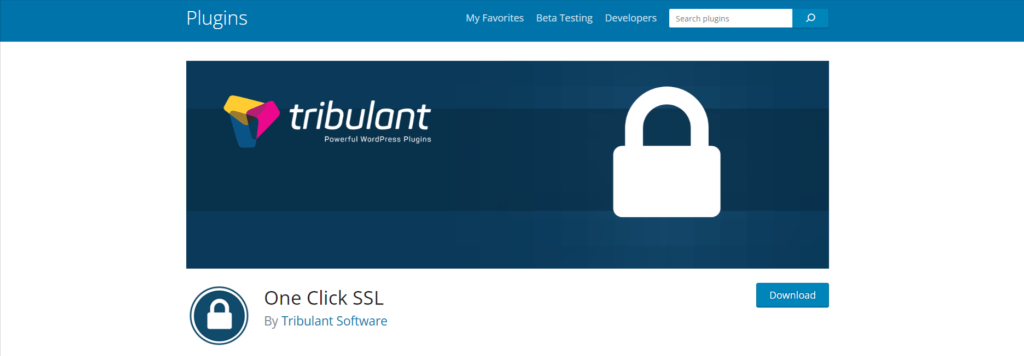
One Click SSL simplifies the implementation of SSL encryption on WordPress websites by providing a one-click solution for enabling HTTPS. With a focus on user convenience and ease of use, the plugin automates the process of configuring SSL settings and ensures that websites are securely encrypted with minimal effort.
Key Features
- One-click SSL activation: The plugin offers a one-click solution for enabling SSL encryption on WordPress websites. With just a single click, users can initiate the process of securing their sites with HTTPS. Moreover, it eliminates the need for manual configuration or technical expertise.
- Automatic HTTPS redirection: One Click SSL automatically redirects HTTP traffic to HTTPS. Furthermore, it ensures that visitors always access the secure version of the website.
- Mixed content fixing: The plugin helps identify and resolve mixed content issues. Moreover, it replaces insecure HTTP resources with secure HTTPS equivalents and ensures a fully secure browsing experience for visitors.
Pros
- One Click SSL offers a straightforward setup process. Therefore, makes it easy for users to enable SSL encryption on their websites with just a single click.
- The plugin automatically redirects HTTP traffic to HTTPS, ensuring that visitors always access the secure version of the website.
- One Click SSL helps identify and fix mixed content issues, ensuring that all resources are loaded safely over HTTPS.
- The integration with Let’s Encrypt allows users to obtain free SSL certificates for their websites. Therefore, it eliminates the need for expensive SSL certificate purchases.
Cons
- One Click SSL relies on Let’s Encrypt for SSL certificate issuance. Hence, it may limit flexibility for users who prefer to use other certificate authorities or SSL providers.
- No doubt One Click SSL offers essential features for SSL encryption. But, it may lack some advanced customization options found in other SSL plugins.
SSL Zen
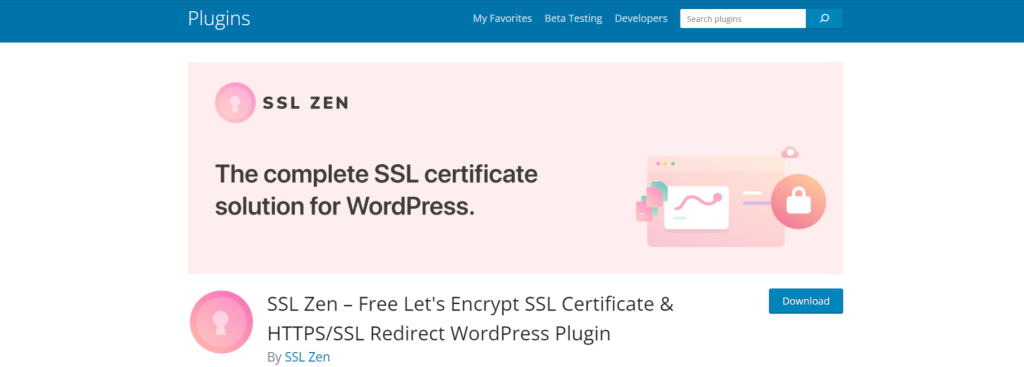
SSL Zen offers users a robust set of tools and features. Moreover, it ensures the secure transmission of data on WordPress websites. With a focus on flexibility and functionality, the plugin aims to streamline SSL implementation and management. Therefore, providing users with a seamless experience from setup to maintenance.
Key Features
- Automated SSL certificate installation: SSL Zen automates the process of obtaining and installing SSL certificates for websites. Furthermore, it eliminates the need for manual configuration or technical expertise.
- Flexible certificate management: The plugin offers users the flexibility to manage multiple SSL certificates for different domains or subdomains from a centralized dashboard, simplifying certificate management tasks.
- Mixed content detection and fixing: SSL Zen helps identify and resolve mixed content issues. By replacing insecure HTTP resources with secure HTTPS equivalents it ensures a fully secure browsing experience for visitors.
- Advanced features: The plugin includes additional security features, such as HTTP security headers, HSTS (HTTP Strict Transport Security) configuration, and OCSP stapling. It is to enhance website security and compliance with best practices.
Pros
- SSL Zen offers a comprehensive suite of tools for managing SSL certificates. Furthermore, it enables users to handle all aspects of SSL implementation and maintenance from a single place.
- The plugin automates the process of obtaining and installing SSL certificates. Moreover, reduces the time and effort required to secure websites with HTTPS.
- SSL Zen helps identify and fix mixed content issues. Also, ensures that all resources are loaded safely over HTTPS to maintain a fully secure browsing experience.
- The plugin includes advanced security features, such as HTTP security headers and HSTS configuration. Furthermore, it enhances website security and compliance with industry standards.
- SSL Zen prioritizes performance optimization to minimize the impact of SSL encryption on website speed and responsiveness. It ensures a seamless user experience.
Cons
- Some users may find SSL Zen’s extensive feature set overwhelming. Especially, those with limited technical expertise or experience with SSL management.
- SSL Zen may require a subscription or purchase fee for access to certain advanced features or premium support options. Therefore, it should be a consideration for budget-conscious users.
- Users may encounter compatibility issues with certain themes or plugins when using SSL Zen, needing additional troubleshooting or adjustments.
Tips for Optimizing SSL Performance
To enhance the performance of SSL encryption on your website, several optimization techniques can be employed.
Minimizing SSL Handshake Time
Minimizing SSL handshake time is crucial for improving performance. Techniques such as implementing session resumption mechanisms like session tickets or session IDs can significantly reduce the time required for SSL handshakes. Additionally, optimizing server configurations to prioritize modern cipher suites and protocols, along with implementing OCSP stapling for streamlined certificate validation, can further decrease handshake latency.
Caching SSL Sessions
Caching SSL sessions can improve performance by configuring the web server to cache SSL session information and using connections to maintain session data between requests. This reduces the overhead associated with making new SSL connections and improves overall performance and response times.
Content Delivery Network (CDN) Integration
Integrating a Content Delivery Network (CDN) into your website infrastructure can also enhance SSL performance. By reducing SSL encryption tasks to edge servers located closer to website visitors, a CDN reduces the burden on servers and improves performance. Choose a CDN with in built support for SSL termination and optimization to ensure seamless integration with SSL-enabled websites.
Regular Plugin Updates and Security Checks
Keeping SSL-related plugins and software up to date is essential for optimizing performance and maintaining security. Regular updates ensure compatibility with the latest SSL/TLS standards and security patches. Additionally, conducting regular security audits and vulnerability scans can help identify and address potential SSL-related issues or vulnerabilities. Monitor SSL certificate expiration dates and renew certificates promptly to prevent service disruptions and ensure continuous security protection. These measures collectively contribute to optimizing SSL performance while maintaining the highest standards of security for your website.
Conclusion
In conclusion, securing your WordPress website with SSL encryption is essential. It protects sensitive data and maintains trust with your visitors. You can ensure security by implementing top premium & free SSL plugins for WordPress like Really Simple SSL, WP Force SSL, Flexible SSL, One Click SSL, or SSL Zen.
Additionally, optimizing SSL performance is crucial. Techniques such as minimizing handshake time, caching SSL sessions, integrating a CDN, and conducting regular plugin updates and security checks will enhance security and performance.
With these tools and strategies, you provide visitors with a safe browsing experience. It also boosts your website’s credibility. Don’t delay in implementing SSL encryption and optimizing performance. Take proactive steps today to safeguard your WordPress website and its users.
Along with an SSL certificate, the security of the website plays an important role in retaining visitors. Get Secure WordPress hosting from UltaHost for reliable and instantaneous access.
FAQ
Why is SSL important for WordPress sites?
SSL encryption ensures secure data transmission, protecting sensitive information and enhancing website security.
How do I choose the right SSL plugin?
Consider compatibility, ease of setup, features, performance impact, and user feedback to find the best fit for your site.
Can I use multiple SSL plugins on my WordPress site?
It’s not recommended as it may cause conflicts. Stick to one SSL plugin for consistent performance and security.
Do SSL plugins affect website speed?
While they add a slight overhead, modern SSL plugins minimize the impact on speed with optimized encryption.
Are there SSL plugins for e-commerce sites?
Yes, some offer features tailored to e-commerce needs like payment gateway integration and EV certificate support.





